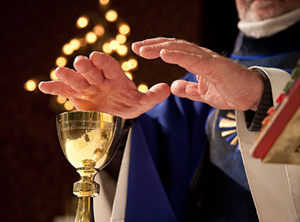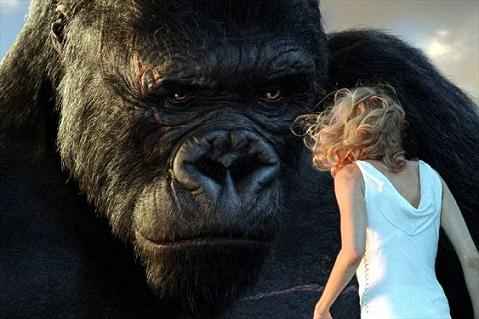When you talk to an atheist or a skeptic about proof for the existence of God, one particularly effective challenge they pose is the apparent lack of indisputable evidence in favor of a Deity. Leaving aside the usual attempts to prove to the contrary, let us consider for the moment a different question. What does it mean to "prove" something exactly? In other words, when we say that we have effectively "proved" that something exists, what are we implying?
What most people assume is meant by this is often quite different from the reality. What we assume we mean is that we have demonstrated some truth beyond a shadow of a doubt. Without getting too much into the weeds about the nature of being, it is safe to say there is very little, if anything, that we can definitively prove if this is the criterion. Exhibit A: Because I once thought my garage door was closed at night, and, as it turns out, it was actually open, I now check the garage door at least twice before determining that I have actually closed it.
To explain it another way, there is a certain level of faith that even goes into believing that what you see corresponds to reality. Perhaps I am confusing a memory with an action, and the garage door isn't closed after all (etc.). Hence, in order to trust that something is, as opposed to is not, we have to settle for a certain level of trust in our senses, a trust that will inevitably fall short of absolute certitude.
When discussing "proof", whether scientific, religious, or otherwise, our standards must necessarily be imperfect. Reason-based proof can only get us as far as reason can get us, which is only as far as the senses and intellect can. Human beings are characterized by limitations. No matter what we are attempting to prove (natural or supernatural), a thing can only be verified on the particular horizon of our awareness. Anything that lies beyond that particular horizon, requires that we make certain inferences about things that we cannot see, based on things that we can. Why do we do this? Because we recognize quite rightly- the things that we see do not exhaustively explain themselves. The question is not whether something is irrefutable (everything is refutable on some level), but whether or not a certain reality meets the definitional standard of "proof."
| The sun does not cease to exist when it falls beneath the horizon line, but you nevertheless cannot see it with your own two eyes |
The first definition of "proof" makes this quite clear: "Evidence sufficient to establish a thing as true, or to produce belief in its truth"; "the effect of evidence convincing the mind"; (in law) "evidence having probative weight". Consequently, if one is to establish something as true, one must first observe the evidence, and then determine whether or not there is sufficient evidence to assent to that particular truth.
People talk all the time about a "smoking gun" in a case, but even were you to literally find one (which seems unlikely), the gun would presumably cease to smoke at some point in the process, thus leaving room for potential doubt in the final analysis. Yet whether we speak about the smoke of an actual gun, or that of the original "Big Bang", the question isn't really whether you can absolutely prove it or see it, but whether the "probative weight" of evidence points to that particular conclusion. In point of fact, if absolute proof were necessary at every trial, you could never put anyone on trial, much less convict them.
In the Gospel of St. Matthew, after the Resurrection (but before the Ascension), Jesus takes the disciples up the mountain, and then proceeds to tell them to go into the world preaching, teaching, and baptizing. However, what is particularly odd about this encounter, other than the fact that a resurrected man is standing in front of them (though that is impressive enough), is the fact that the some of the disciples are relatively skeptical about the one who is staring them in the face; "they worshiped him, but some doubted". Whether you accept the resurrection or not, you get a glimpse of the inevitable limitations and shortcomings of the senses. Empirical evidence is great, but sometimes even that is not enough, especially when a thing is beyond our horizon expectation level. So no, seeing doesn't always mean believing, and yes, there are things that we see and hear that make us say things like; "I can't believe what I am seeing and hearing".
Obviously one cannot absolutely verify God's existence, especially if you reject proofs that involve the Incarnation. God is not, or so it would seem, an everlasting table that shouts his name over and over so that we have clear evidence that he exists. Nor does he stand in the sky and wave (or threaten) endlessly like some Monty Python character. This might seem convenient on one level, but I am not sure what purpose it would serve in light of our freedom to be thinking and loving creatures.
In any case, what can be proven absolutely by empirical evidence, is the likelihood that God does exist. There is always a chance that you or I are wrong about anything, or that what seems to apply universally, only applies locally. However, what can be said empirically and universally, is that the universe, along with all the life that inhabits it, demands some sort of satisfactory explanation to explain it being there. The likelihood that the universe simply fell together by accident, and that it continues to function and evolve (inexplicably) in a way that is both intelligible and operational, seems to strain credulity. Referred to as the Anthropic Principle, this argument argues that, statistically speaking, the likelihood of the universe occurring by happenstance borders on the impossible. Put another way, the resurrection seems like peanuts compared to this. Hence, percentage-wise, it is far more reasonable (and less of a leap of faith) to posit a Supreme Being at back of everything.
The second definition for "proof" offers a more practical side ; "(Something) able to withstand"; successful in not being overcome"; "to demonstrate as having a particular quality of worth." Biblically speaking, the word "proof" is often used as a metaphor to describe the "worth" of a man's faith. The metaphor is usually employed in like manner; "For thou, oh God, has proved us; though has tested/tried us as silver is tried" Psalm 66:10. Hence, "proving" in this sense means not only that something can endure a "trial" by fire, but that the testing actually "proves" the worthiness of the material (hence it is transformed into gold). Not only in this case does the unpleasant experience fail to destroy the individual or their faith, but it actually "proves" their faith (double meaning intended).
As it relates to the big ideas of history, something "proves" itself based on whether or not it can "stand the test of time". The question isn't whether something is fashionable a lengthy period, but whether it endures every age and culture. Indeed, time is the great editor of all things inessential, and so if an idea is weak it will simply melt away like dross into the fire of history.
But what about lies, you may ask? Haven't there been any number of successful (as well as enduring) lies? And indeed there have been, but just like any true/false section of a test or quiz, the wrong answer survives, and is popular, only to the extent that it successfully mimics the right one.
The third definition for "proof" offers a more legal angle; "the act of testing or making a trial of something." Understood in this context, proving something actually requires subjecting it to a kind of crucible, putting it up on the stand, so to speak, holding it up to scrutiny.
Just as evolution is not disproved by those who reject it based on theological bigotry, neither is God, nor the Catholic Faith disproved because some prefer to call it irrelevant. The truth is buoyant. You can put it on trial, you can martyr it, you can bury it under the floor boards, but in the end you will only wind up "proving" it all the more when it rises from the dead again.
You cannot absolutely prove that there is such a thing called science (a.k.a. cosmic order), but you can apply certain principles/doctrine to test the veracity of the idea. To this extent, there seems to be sufficient proof/evidence to suggest that there is a cosmic order, just as there appears to be evidence for proving the Big Bang as well as Evolution. The proof is not simply in the fact that we can obtain general data by studying it, but that the datum once examined, is progressive (viz. it bears much fruit). In other words, it continues to open new doors of understanding that closed with the prior model. Simply put, it works! In the same sense, you cannot point to the abstraction known as science, but you can infer that there is such a thing as it by virtue of all of the bounty that we have experienced by presuming it.
Consequently, based on these definitional standards, there does seem to to be adequate "proof" to argue in favor of the existence of God. Can you prove that there needs to be a First Cause in order that there be subsequent causes? Based on the definition of proof, not to mention the general logic that we apply to every day life...yes.
The case becomes even stronger when all of the logical "proofs" are considered in tandem (i.e. The Argument from Design, Cause, Degrees of Perfection, Conscience, History, etc.). In other words, when these proofs are taken collectively they appear to establish a reasonable basis for positing a First Principle that initiated this process, a process which seems otherwise completely mystifying and inexplicable otherwise.
What is unreasonable is the suggestion that logic can be applied to science (and everything else for that matter), but not for the biggest question of all. Point being, if we apply this logic to every other link in the chain, why wouldn't it make sense to apply it to the First? We all knew that religion was "irrational", but who knew that it was simply because scientists demanded that it had to be!? Damned if you do, and damned if you don't!
As far as whether the standard has been met in definitions two and three, I would have to answer in the affirmative again. Belief in a Deity has stood the test of time. It has been put on trial by barbarians and thinkers alike (which are on occasion the same people). And as it turns out, atheism and skepticism are the aberration in history, not religion (and a recent one at that). Complete skepticism and atheism are in the end the creeds which are most unlivable, while belief in a Deity that orders the universe in a rational manner is, well, the most rational.
Religious folks are expected to make their case for religion, and understandably so. But shouldn't we expect more of our atheist and skeptic friends than an argument that is basically goes something like this; "na na na na you can't prove God 100%". I have already pointed out why such a bar- from the standpoint of reason- is necessarily an impossible one (which seems to be why it is set where it is). I am not here suggesting that every religion is equally logical, rather I am suggesting that the general belief in a Creative force at the back of everything is quite a logical position. Superstition is to religion what alchemy, astrology, and certain ideological scientists are to science.
 |
| Jesus as the divine Geometer- 13th century |
In everything that can be seen there are certain assumptions made about about those things which are unseen; "For his invisible attributes, namely, his eternal power and divine nature, have been clearly perceived, ever since the creation of the world, in things that have been made." (Romans 1:20) We cannot see science, but we have come to believe that it works because we have applied its principals and they have subsequently borne fruit. The same goes for right religion.
Is this not a better explanation for the advance of modern science than the suggestion that it arose from a heretofore unheard of school unbelieving scientists? If you believe that the universe is a giant mortuary of chaos and meaninglessness, why would that then lead you to come to recognize its logic and order.
But whatever the case, history and observation do not bear out this account of the story (see above photo from French Bible circa 13th century). Nonetheless, I suppose if you can believe that the universe began arbitrarily and without cause, then you can also believe that science happened in the same fashion. By contrast, if my hypothesis is correct, then is it not particularly ironic that some in this whole debate would employ the exact same logic gleaned from an explicit belief in a Designer in order to prove that there is no need for a Designer at all? Very Prodigal Son, if you ask me.




















